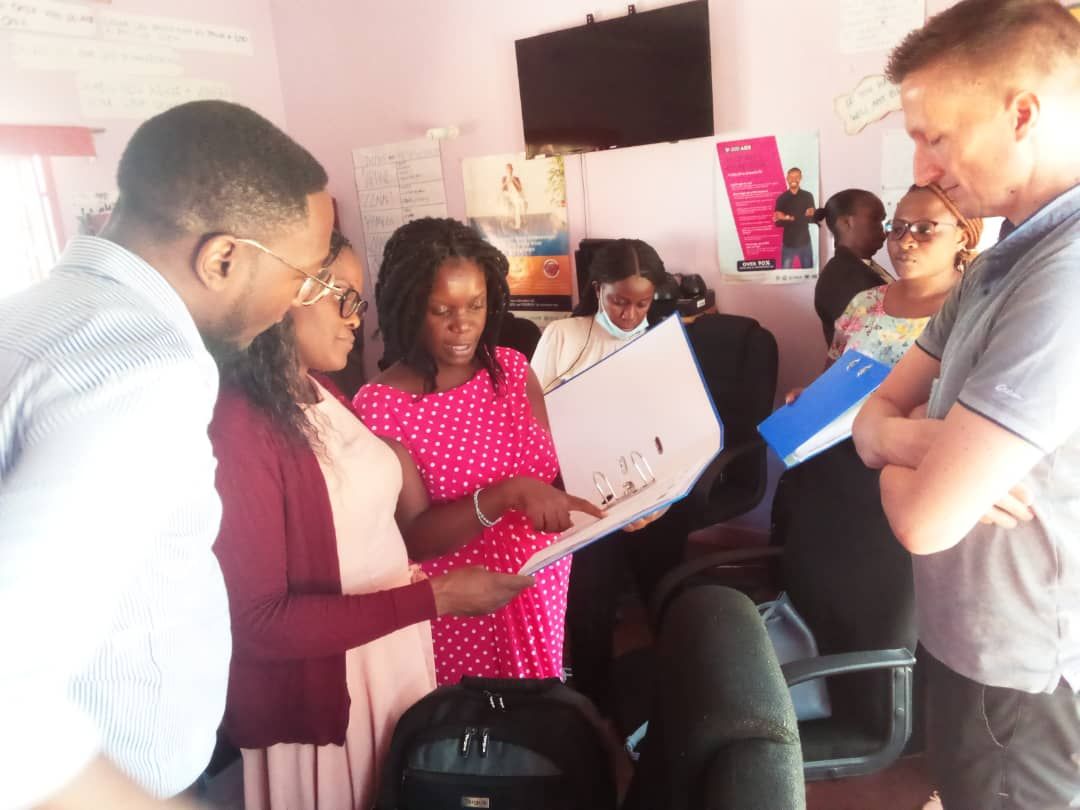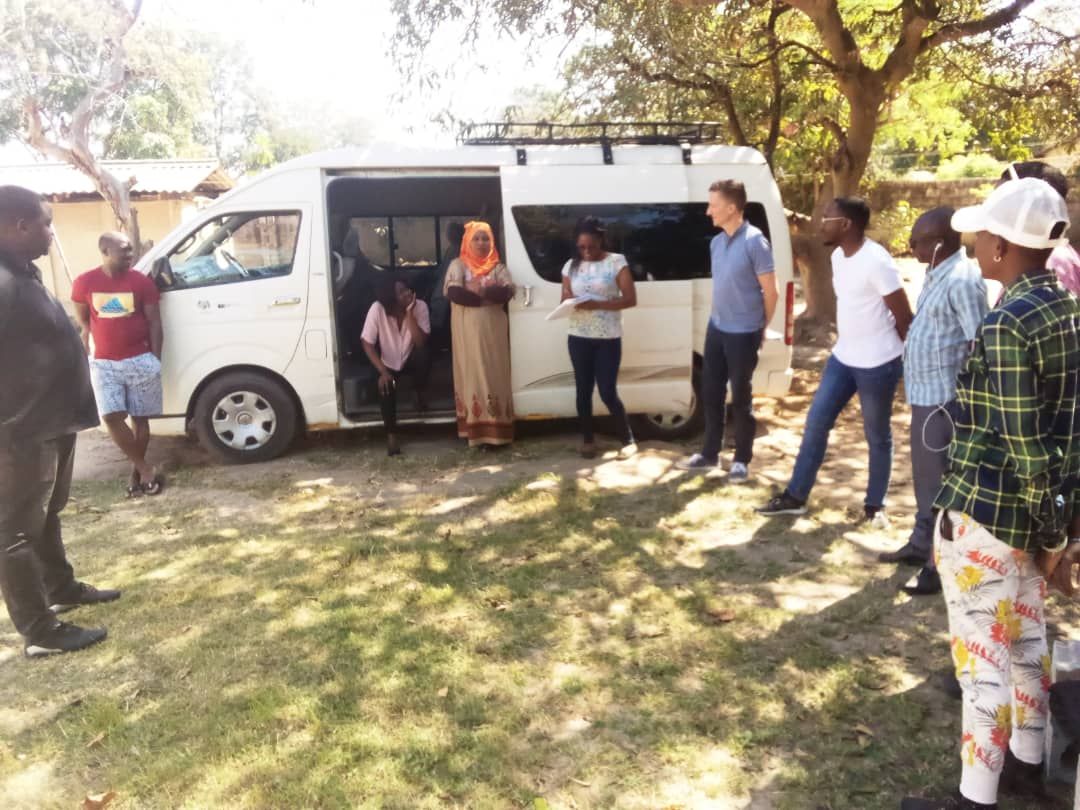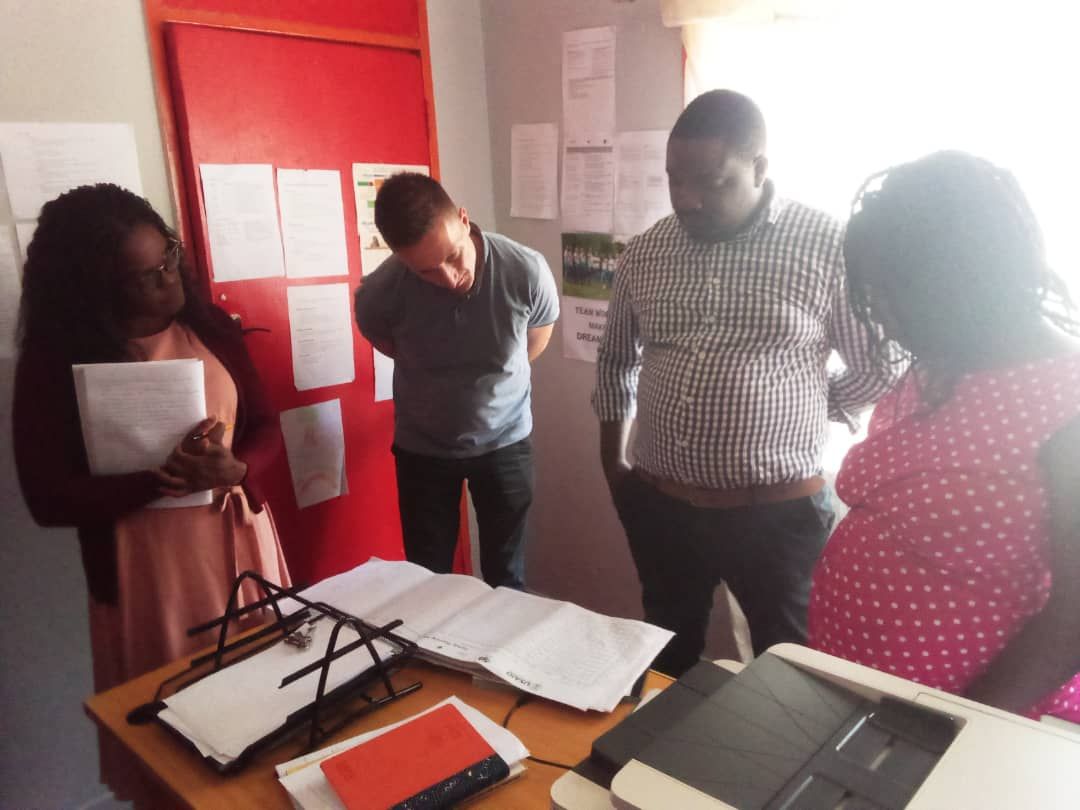Since April 2022, D-tree has been leveraging our digital health systems strengthening expertise in Zambia. Today, we are excited to share more about our work in the country.
Like many countries in the region, Zambia has an ongoing HIV epidemic. According to UNAIDS, the adult HIV prevalence is at 12.9 % and 90 % of new infections are driven by factors such as multiple sexual partnerships, mother-to-child transmission, low condom use and mobility and labor migration. This does not only have an effect on individuals and families, but also on the whole society as HIV often affects people when they are at the peak of their productive and reproductive lives.
Drawing on our experience from other countries in the region, in April 2022, we started building relationships with stakeholders in Zambia to see if our approach would be a good fit, and in April this year, we opened the doors to our new office and started operations with three staff members.
Our first contributions in Zambia are focused on improving health service delivery in the country under the project USAID Controlling HIV Epidemic for Key and Underserved Populations (CHEKUP I Project). The project is led by The Center for Infectious Disease Research in Zambia (CIDRZ) and is running from 2021 to 2026 and aims to improve health outcomes for Zambians by preventing new HIV infections among priority and key populations most at risk. This goal is very much aligned with D-tree’s vision of a world where everyone, no matter where, has access to the healthcare they need to live longer, healthier lives.
As the digital health partner in the project, we are supporting the design, development, and implementation of a digital system to support key and priority populations living with HIV. In the first year, D-tree conducted stakeholder and landscape analyses to understand opportunities to improve HIV services, aligned with CIDRZ and Ministry of Health (MOH) priorities. Following this, we have worked closely with CIDRZ and other partners to refine the understanding of priorities and collaboratively agree on a recommended approach for HIV for system strengthening.
At D-tree, we believe that for digital health programs to improve people’s lives in the long term, it’s vital that they’re planned and designed with the needs of the people they serve at their core from the very beginning and this analyses have been crucial foundation work.
Aside from collaborating closely with CIDRZ, D-tree’s work in Zambia has also included actively participating in and contributing to high-level discussions about the use of digital tools to support health service delivery, including HIV, Reproductive Maternal and Child Health, Malaria and Tuberculosis at the community level. Our work in Zambia also includes being active participants in the MOH-led technical working groups focused on digital health, monitoring and evaluation, and community health.
Our focus now is to continue to build strong partnerships to support and improve the sustainability of the digital health ecosystem. This includes scale-up of the digital health infrastructure, developing digital health workforce capacity and equipping community health workers with the necessary tools for standardized care, with a focus on HIV testing and treatment. The system that will be developed will be aligned with the Ministry of Health’s vision for coordinated integration by being integrated with a national Health Information Exchange (HIE), rather than through fragmented system-to-system integrations. Through this work, we will naturally also work to improve access to, and quality of, data for decision-making at national and local levels in Zambia.
At D-tree, we are laser-focused on creating a real difference and we are driven by having a tangible, meaningful impact on people’s lives. We are incredibly excited to leverage our approach and create an impact with our partners in Zambia. Together we will continue to innovate and collaborate with compassion and care at the center of what we do, and ultimately strengthen the health system in the country.
We are grateful for the partnership with, and funding from, CIRDZ, making the work under USAID CHEKUP l Project possible.




